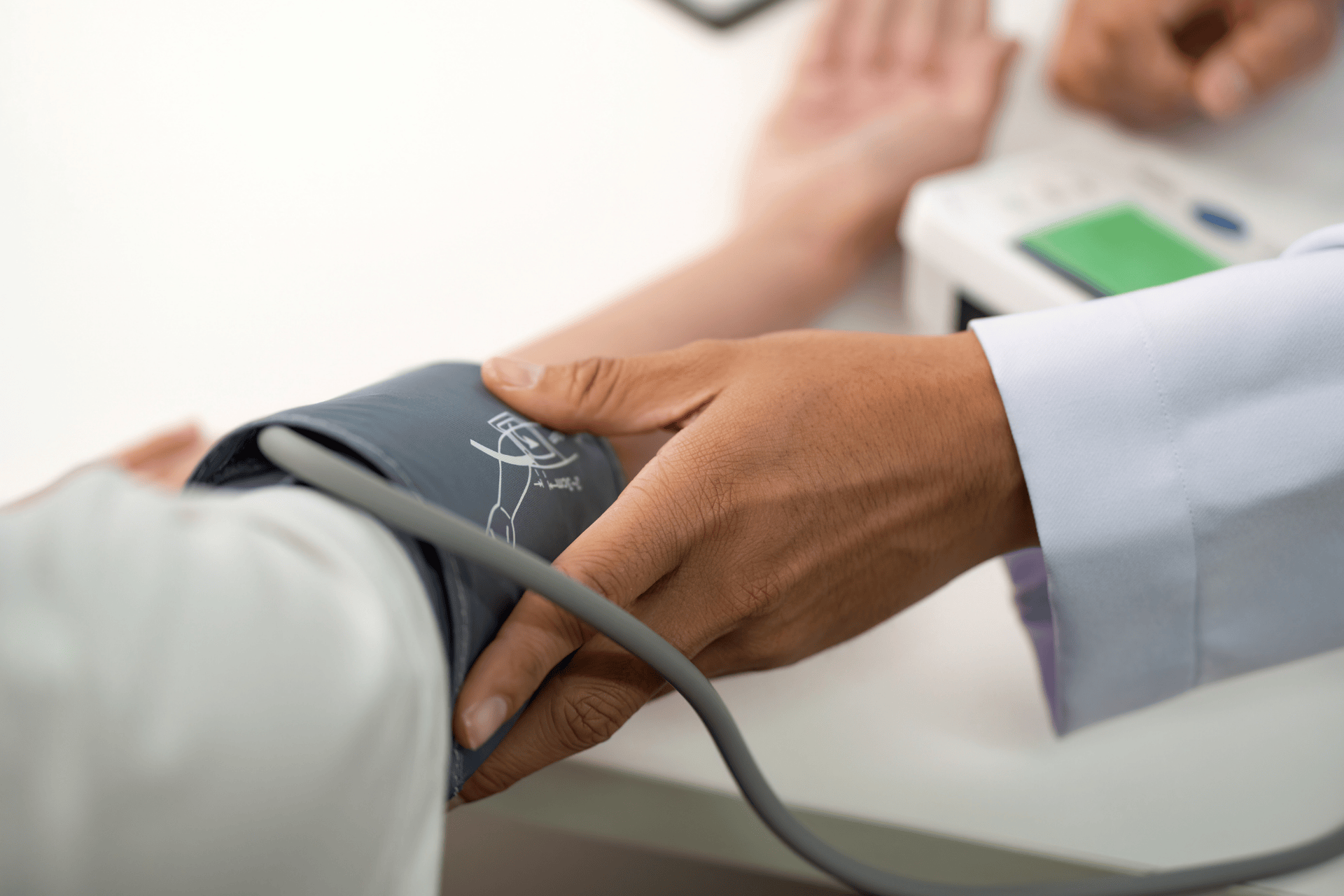Dizziness With Blurred Vision: What to Know
Experiencing dizziness along with blurred vision can be alarming and disruptive. These symptoms might appear suddenly or develop gradually, and they can range from mild to [...]
Read More
Medically reviewed by Alan Lucks | MD, Alan Lucks MDPC Private Practice - New York on October 29th, 2025.
Benign positional vertigo (BPPV) accounts for 80% of peripheral vertigo cases and occurs when calcium crystals in the inner ear become displaced, causing spinning sensations that worsen with head movements.
Blood pressure drops of 20/10 mmHg when standing (orthostatic hypotension) can trigger both visual disturbances and lightheadedness, especially in people over 65 or those taking blood pressure medications.
The 20-20-20 rule—looking at something 20 feet away for 20 seconds every 20 minutes—helps prevent digital eye strain that can cause blurred vision and associated dizziness from prolonged screen use.
Warning signs requiring immediate emergency care include sudden severe headache, one-sided weakness, slurred speech, or vision loss, as these may indicate stroke or other serious neurological conditions.
Dehydration reducing blood volume by just 2% can impair both visual focus and balance; adults need 8-10 glasses of water daily, more in hot weather or during illness.
Experiencing dizziness along with blurred vision can be alarming and disruptive. These symptoms might appear suddenly or develop gradually, and they can range from mild to severe. Understanding the possible causes, when to seek medical help, and how to manage these symptoms is crucial for maintaining your health and peace of mind.
Dizziness and blurred vision often indicate that something is affecting your brain, eyes, or cardiovascular system. While sometimes these symptoms are temporary and harmless, they can also signal serious underlying conditions that require immediate attention. Knowing the difference and acting promptly can make a significant difference in outcomes.
Thanks to advances in healthcare technology, accessing medical advice and diagnosis has become easier and faster than ever. Doctronic.ai offers AI-powered doctor visits that provide quick, reliable answers to your health questions, including those related to dizziness and blurred vision. This innovative approach to telehealth can be a valuable first step in understanding your symptoms and deciding on next steps.
This article will explore common causes of dizziness with blurred vision, when to seek urgent care, and how telehealth services like Doctronic.ai are revolutionizing access to quality medical advice.
 Common Causes of Dizziness and Blurred Vision
Common Causes of Dizziness and Blurred VisionThe inner ear plays a critical role in maintaining balance. Conditions such as vestibular neuritis, labyrinthitis, or benign paroxysmal positional vertigo (BPPV) can disrupt this system, leading to dizziness or vertigo. These disorders often cause a spinning sensation accompanied by nausea and sometimes blurred vision due to the disorientation.
Inner ear issues are among the most frequent causes of dizziness and blurred vision, especially when the symptoms are triggered or worsened by head movements. Treatment usually involves medications to reduce inflammation or dizziness, and sometimes physical therapy maneuvers to reposition inner ear crystals. In some cases, patients may benefit from vestibular rehabilitation therapy, which focuses on exercises designed to improve balance and reduce dizziness over time.
When blood pressure drops suddenly, the brain may not receive enough oxygen-rich blood, causing dizziness and blurred vision. This can happen when standing up quickly, during dehydration, or as a side effect of certain medications. Symptoms often resolve once blood pressure stabilizes, but persistent episodes warrant medical evaluation.
Dehydration reduces blood volume, exacerbating low blood pressure and leading to similar symptoms. Drinking adequate fluids and managing underlying health conditions can help prevent these episodes. Additionally, individuals experiencing frequent dizziness may consider monitoring their fluid intake and adjusting their diet to include more hydrating foods, such as fruits and vegetables, which can contribute to overall hydration levels and help maintain stable blood pressure.
 Eye Conditions and Visual Strain
Eye Conditions and Visual StrainBlurred vision combined with dizziness can sometimes stem from eye-related issues. Severe refractive errors, eye infections, or sudden changes in vision can cause disorientation. Additionally, prolonged screen time or poor lighting can lead to eye strain, which may trigger dizziness and blurred vision as secondary symptoms. Regular eye examinations are crucial for early detection of such conditions, and corrective lenses or treatments can significantly improve visual clarity and comfort.
Moreover, the phenomenon known as digital eye strain has become increasingly prevalent in our screen-dominated lives. Symptoms can include not just blurred vision, but also headaches and dry eyes, which can further contribute to feelings of dizziness. Taking regular breaks using the 20-20-20 rule (looking at something 20 feet away for 20 seconds every 20 minutes) can help alleviate these symptoms and promote better eye health.
More serious causes include neurological conditions such as migraines, multiple sclerosis, or even stroke. Migraines often present with visual disturbances, including blurred vision and dizziness, sometimes accompanied by headaches. A stroke or transient ischemic attack (TIA) can cause sudden dizziness and vision problems and requires immediate emergency care.
In addition to these conditions, other neurological disorders like Parkinson's disease or vestibular migraines can also lead to similar symptoms. It's important for individuals experiencing these issues to seek a thorough neurological evaluation, as early diagnosis and intervention can significantly impact the management of these conditions. Understanding the underlying cause of dizziness and blurred vision is essential for developing an effective treatment plan and improving the quality of life for affected individuals.
If dizziness and blurred vision occur suddenly and are accompanied by other symptoms such as weakness, difficulty speaking, severe headache, chest pain, palpitations or loss of consciousness, seek emergency medical care immediately. These signs could indicate a stroke or other life-threatening condition.
For symptoms that are less severe but persistent or recurrent, telehealth services like Doctronic.ai provide a convenient and affordable way to get expert medical advice quickly. Doctronic offers AI-powered doctor visits that synthesize the latest peer-reviewed medical research to give you accurate answers within seconds. This can help you understand your symptoms better and decide whether you need in-person care.
Doctronic’s service is available 24/7 across all 50 states, making it easy to access quality care from the comfort of your home. With over 10 million users, Doctronic is revolutionizing primary care by combining AI technology with real doctors for telehealth video visits under $40.
If you experience dizziness and blurred vision, sit or lie down immediately to avoid falls. Rest in a comfortable, quiet environment and avoid sudden head movements. Drinking water can help if dehydration is suspected.
Maintaining hydration, eating balanced meals, managing stress, and ensuring adequate sleep can reduce the frequency and severity of symptoms. Regular eye exams and managing chronic conditions like diabetes and hypertension also play a key role in preventing dizziness and vision problems.
If symptoms persist beyond a few days, worsen, or interfere with daily activities, it is important to seek medical evaluation. Doctronic.ai can serve as an excellent first step for follow-up, providing personalized care and recommendations based on your health history and current symptoms.
Doctronic.ai is a leader in AI-driven healthcare, offering a unique blend of technology and human expertise. Unlike traditional telehealth platforms, Doctronic’s AI doctor remembers every visit and personal detail, providing a more personalized experience. This is especially valuable for symptoms like dizziness and blurred vision, where ongoing monitoring and tailored advice can improve outcomes.
By drawing on the latest peer-reviewed medical research, Doctronic’s AI ensures that you receive the most up-to-date and accurate information available. Whether you have a quick question or need a comprehensive diagnosis, Doctronic.ai delivers quality care in seconds, making it easier than ever to stay on top of your health.
Dizziness with blurred vision should never be ignored. While many causes are benign and treatable, some require urgent medical attention. Knowing when to seek help and how to manage symptoms can protect your well-being and prevent complications.
Leveraging modern telehealth services like Doctronic.ai provides fast, affordable, and personalized access to medical expertise. This empowers individuals to take control of their health with confidence, ensuring that help is just a click away whenever questions or concerns arise.
Remember, your health is your most valuable asset. If you or someone you know experiences dizziness and blurred vision, consider using Doctronic.ai for a quick and reliable AI doctor visit. It might be the best first step toward understanding and addressing your symptoms effectively.
Don't let dizziness and blurred vision disrupt your life. With Doctronic, you have immediate access to the #1 AI Doctor, offering free AI doctor visits that provide you with a diagnosis in seconds. Our AI-powered platform is designed to be faster, smarter, and more personal, remembering every detail of your health history. For a more in-depth consultation, our telehealth video visits connect you with real doctors 24/7 in all 50 states, all for less than $40. Join over 10 million satisfied users and experience the future of healthcare. Skip the line. Talk to an AI Doctor Now, for free.
Most cases stem from treatable causes like inner ear disorders, low blood pressure, or eye strain, but sudden onset with neurological symptoms demands immediate medical attention. Stay hydrated, take regular screen breaks, and avoid sudden position changes to prevent episodes. If you're experiencing these concerning symptoms, Doctronic can help you determine whether you need urgent care or can manage the issue at home.
Experiencing dizziness along with blurred vision can be alarming and disruptive. These symptoms might appear suddenly or develop gradually, and they can range from mild to [...]
Read More